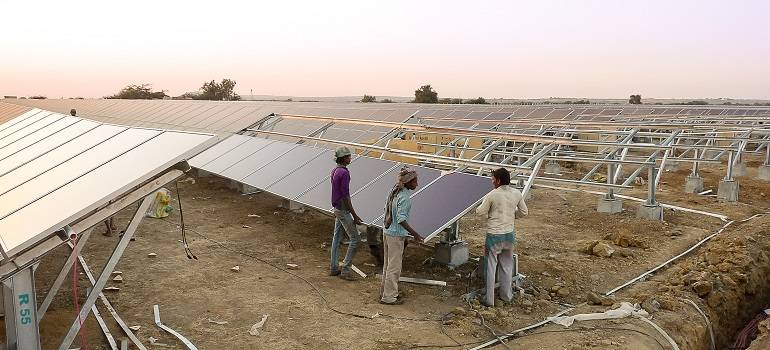Fear of Job Loss and Undocumented Status Compound Heat Stress Risks
In a concerning trend, many workers are suffering in silence from heat stress symptoms, as they fear potential job loss or retaliation. This issue is particularly magnified among undocumented workers who lack access to healthcare. With approximately 40% of the global population exposed to consistently high temperatures above 30°C year-round, urgent actions are needed to address this hidden health crisis.
India, in particular, is grappling with significant risks associated with rising temperatures. Over the years, the mean temperature in India has surged by 0.7 °C between 1901 and 2018, and projections indicate an alarming increase of 4.4 °C by the century’s end. This dire situation has led to a surge in heat-related deaths, which spiked by 55% between 2000-2004 and 2017-2021, according to the Lancet Countdown. Shockingly, heat exposure has caused a staggering loss of 167.2 billion potential labor hours in India alone.
The study underscores the pressing need for comprehensive measures to safeguard vulnerable workers from heat-related risks. Employers must take immediate steps to ensure access to shade, water, and regular rest breaks. Furthermore, proper training on recognizing and reporting heat stress symptoms is essential. Healthcare workers also have a pivotal role to play, as they need to be trained in identifying symptoms of Heat-Related Illness (HRI) and educating workers about staying hydrated and avoiding prolonged exposure to high temperatures.
Government agencies hold a critical role in mitigating these risks. Existing guidelines and recommendations from organizations such as India’s National Disaster Management Authority and National Action Plan on Climate Change need effective implementation. Strengthening labor laws that protect workers’ rights, enhancing public awareness, and bolstering public health infrastructure are imperative steps to minimize the impact of heat stress on vulnerable populations.
Prof. Vivekanand Jha, Executive Director of The George Institute for Global Health India and co-lead of the UK NIHR Global Health Research Centre for Non-Communicable Diseases and Environmental Change, emphasized the urgency of prioritizing the well-being and safety of workers in a warming world. He stressed that collaborative efforts from employers, policymakers, and public health officials are essential to protect the health and livelihoods of those on the frontlines of heat-exposed labor.


